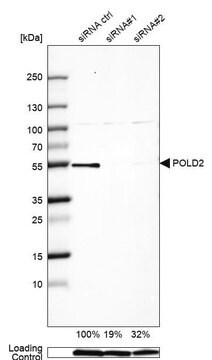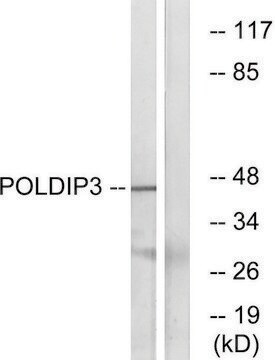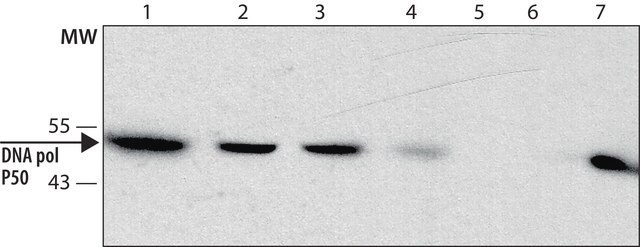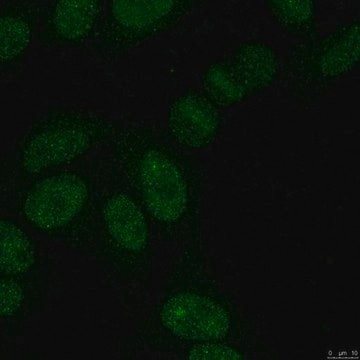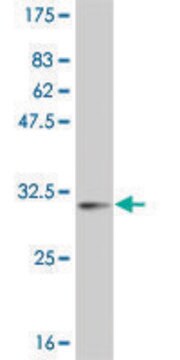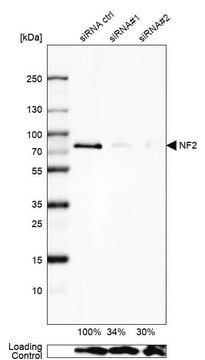SAB4200053
Anti-DNA polymerase δ p125 antibody, Rat monoclonal
clone PDG 5G1, purified from hybridoma cell culture
Synonyme(s) :
Anti-POLD1, Anti-Polymerase (DNA directed), delta 1, catalytic subunit 125kDa, Monoclonal Anti-DNA polymerase δ p125 antibody produced in rat
About This Item
Produits recommandés
Source biologique
rat
Forme d'anticorps
purified from hybridoma cell culture
Type de produit anticorps
primary antibodies
Clone
PDG 5G1, monoclonal
Forme
buffered aqueous solution
Poids mol.
antigen ~125 kDa
Espèces réactives
human, mouse, rat
Conditionnement
antibody small pack of 25 μL
Technique(s)
immunocytochemistry: suitable
immunoprecipitation (IP): suitable
western blot: 0.5-1.0 μg/mL using Jurkat cells extract
Numéro d'accès UniProt
Conditions d'expédition
dry ice
Température de stockage
−20°C
Modification post-traductionnelle de la cible
unmodified
Informations sur le gène
human ... POLD1(5424)
Catégories apparentées
Description générale
Immunogène
Application
- immunoblotting
- immunoprecipitation
- immunocytochemistry
- co-immunoprecipitation
Actions biochimiques/physiologiques
Forme physique
Clause de non-responsabilité
Not finding the right product?
Try our Outil de sélection de produits.
Code de la classe de stockage
10 - Combustible liquids
Point d'éclair (°F)
Not applicable
Point d'éclair (°C)
Not applicable
Certificats d'analyse (COA)
Recherchez un Certificats d'analyse (COA) en saisissant le numéro de lot du produit. Les numéros de lot figurent sur l'étiquette du produit après les mots "Lot" ou "Batch".
Déjà en possession de ce produit ?
Retrouvez la documentation relative aux produits que vous avez récemment achetés dans la Bibliothèque de documents.
Notre équipe de scientifiques dispose d'une expérience dans tous les secteurs de la recherche, notamment en sciences de la vie, science des matériaux, synthèse chimique, chromatographie, analyse et dans de nombreux autres domaines..
Contacter notre Service technique